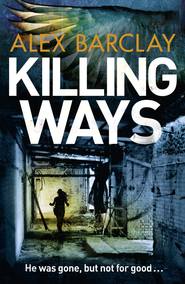По всем вопросам обращайтесь на: info@litportal.ru
(©) 2003-2024.
✖
Curse of Kings
Настройки чтения
Размер шрифта
Высота строк
Поля
“Perhaps,” said Arthur.
“And where is he now?” said Oland. “Did anyone see him leave the castle?”
“Well,” said Arthur, “there is a story that travelled the length and breadth of Decresian, but no one can trace it to one witness. A boy of his age was seen fleeing the castle the night the king was overthrown. The Craven Lodge had been searing the initials of Villius Ren on to the nape of his neck, as they did to most of us, but this boy struggled, disturbing a lantern and sending oil spilling on to his shoulders. The oil went up in flames against the branding iron and, as The Craven Lodge jumped back from them, this burning boy took the chance to escape. The last he was seen, the flames had died and he was riding off in a carriage filled with chests.”
“Did Tristan Ault abandon King Micah?” said Oland.
“Oh, no,” said Arthur. “There exists an archivist’s oath, a simple two-line oath. It supersedes all other oaths, including that which binds them to their master. Archivists believe that they cannot participate in any event that is to be recorded in the history of the kingdom. They believe that to become a participant would be to curse the future. Their only task is to truthfully chronicle events, and to guard these chronicles fiercely. That is why, if young Tristan Ault decided to take the oath that night and become an official archivist, he would have been compelled to leave the castle.”
“And has Villius Ren ever tried to find him?” said Oland. “I’ve heard no mention of his name in Castle Derrington. And Villius constantly mentions the names of his enemies.”
Arthur shook his head. “To cover the theft of the archives and the census, Villius Ren put the story about many years ago that he slaughtered the entire Ault family.”
“But why, now, would this archivist not come forward?” said Oland.
“As you know,” said Arthur, “archivists lead solitary lives. Samuel Ault would have dealt only with King Micah and Queen Cossima; his father would have dealt only with the ruler of Dallen. Archivists are known for having pride in their work and passion for it, but they seek no public recognition. Their only desire is to faithfully honour the king, the kingdom and its history.”
“But who does Villius Ren say that the burning boy is?” said Oland.
“Oh, you know Villius,” said Arthur. “‘It was a burning rat, a burning weasel…’”
Oland nodded.
“It’s a string of interwoven lies,” said Arthur. “If Villius Ren admits that someone took away the history of Decresian, it would be admitting that King Micah had foreseen Villius’ treachery; otherwise, the documents – of which there were thousands – would never have been packed away in a carriage, ready to be carried away. That would have taken a long time.”
“So, if I could find Tristan Ault, maybe I could find out who my parents are and where I come from,” said Oland.
“I’m afraid that is an onerous ambition,” said Arthur. “Time and again, archivists have witnessed the devastating consequences of misplaced trust, so they trust few.”
“Is there anything else you know about him?” said Oland.
“I have told you everything I know,” said Arthur. He paused. “The only other thing I can think of is that the boy you are looking for, is a man now, close to thirty. And he will bear the scars of a liquid burn on his neck and back.”
As Oland drifted off to sleep, he was occupied by the thought that, along with restoring a kingdom, perhaps he could restore himself, and the cloak of his dark past could be shed. Yet it wasn’t all dark: now that he knew the story of his past was fiction, his father did not have to be a bad man; he was free to imagine an alternative.
He did not have to change his vision of his mother; he had always seen her as brave and strong and loyal. He conjured up a beautiful woman with a kind face, perhaps with his green eyes, perhaps his long fair hair. The comfort of her imagined warmth finally brought him to sleep, and on a makeshift bed in a strange room behind a stinking barn, he had the longest uninterrupted sleep he could remember.
When Oland awoke, he was alone. In the dim candlelight, he saw food on the table. He left it untouched. He went to the small door, and tried to open it. It rattled. It had been latched from the outside. Oland shouted for Arthur. He didn’t care who heard; he didn’t even know who might be there to hear him.
As the hours passed, hunger was turning Oland’s attention to food, but, as the scent of pine needles faded, and the odour of the barn began to seep under the door, he was happy to remain hungry. He lay down on the bed, staring up at the ceiling. He realised he had left his bag in the cart. He patted his pockets. The king’s letter was still there. But he had no book to read, nothing to distract him. At the castle, Oland’s days were filled with dozens of tasks that he had to carry out for The Craven Lodge, after no more than four hours’ sleep. Because he had slept long and peacefully the previous night, he was wide awake. And he was still alone hours later when the candle finally burned out.
A shaft of light eventually appeared at the bottom of the door, and the latch rattled again. Arthur Rynish, with a lantern in his hand, walked in.
“I’m sorry, Oland,” he said. “It took longer than I thought.”
“Where did you go?” said Oland. “Why did you leave me here?”
“There was something not quite right on our journey here,” said Arthur. “It unsettled me. And I needed to make sure that we were safe.”
“You could have left me a note.”
“What you are doing is dangerous, Oland. Were I to have left you a note, and you were discovered, a link would have been made between us. And that cannot happen. For you to carry out this quest, it must be alone.”
“King Micah’s letter said that I was to have a companion,” said Oland.
“I don’t think you should,” said Arthur. “But that’s just my opinion. What I will tell you is that you cannot be connected to my brother or me. You don’t know the Rynishes, you’ve never heard of them – do you understand?”
Oland nodded. “Why?”
“Stop,” said Arthur. “Stop asking questions. I’m telling you things for your own good, for the good of everyone. Say as little as possible, and you will remain in as little danger as possible.”
“Danger?” said Oland. “Why? Do you think anyone else knows where I am going?”
“Just my brother and I,” said Arthur. “And… had you considered… whoever left the letter for you?”
Oland shook his head. “I hadn’t, no.”
“Regardless,” said Arthur, “you are in danger, at the very least for leaving Castle Derrington – for running out on Villius Ren and The Craven Lodge.”
Oland did not say that it had been very clear that Villius Ren wanted him dead.
The following morning, when Oland awoke, Arthur Rynish was sitting in the chair opposite him.
“Your bag,” he said, pointing to the floor. “You left your bag in the cart.”
Oland sat up and pulled the bag towards him. He wondered where the little monkey was. Was he still nearby?
“Eat and let’s go,” said Arthur. “We have many miles to travel before we reach the Dallen border.”
(#ulink_4465001d-32ac-5189-a1ff-49cdd8443d5b)
S THE NIGHTS PASSED, OLAND’S HOPE WANED. ARTHUR Rynish’s often sullen mood brought no comfort. Oland welcomed the brief stops in the deserted houses and outbuildings, and wondered who were the strangers that had left food for the tailor – always for one, never for two. Oland knew that, despite emerging from the shadow of The Craven Lodge, for now, he was still invisible. And when, over a week into their journey, they reached the official crossing between Decresian and Dallen, his invisibility was all he thought of as he buried himself under the canvas.
There was just one route from Decresian into Dallen, and it was carved through the vast forest that separated them. A group of border guards was stationed in a small wooden building at the official border, but every traveller knew that there were guards hidden everywhere in the trees.
As the horse slowed, Arthur whispered to Oland. “It’s Terrence Dyer from Garnish,” he said. “A merchant of misery, the greyest of men. Hard to believe he’s the son of Gaudy Dyer.”
Arthur brought the horse and cart to a stop.
“The Tailor Rynish,” said Terrence grimly. “Welcome, again, welcome.”
“Thank you, Terrence,” said Arthur. “How are you?”
“In the throes of life,” said Terrence.
“How’s your father?” said Arthur. “It must be thirteen years since he left Garnish.”
“Was forced to leave,” said Terrence. “And not one day has passed without lament. The mines in Galenore are no place for an old man. Word has come in recent days that the smelting fires on the hills won’t take, so there is much concern about the supplies of galena. Without lead, many territories will suffer.”











